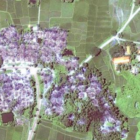Tools & Techniques
Investigating Rainforest Destruction: Finding Illegal Airstrips Using Machine Learning
|
Rainforest Investigations Network fellow Hyury Potter used data reporting and machine learning to investigate the link between clandestine airstrips and illegal mining in the Brazilian Amazon during the past two years.









